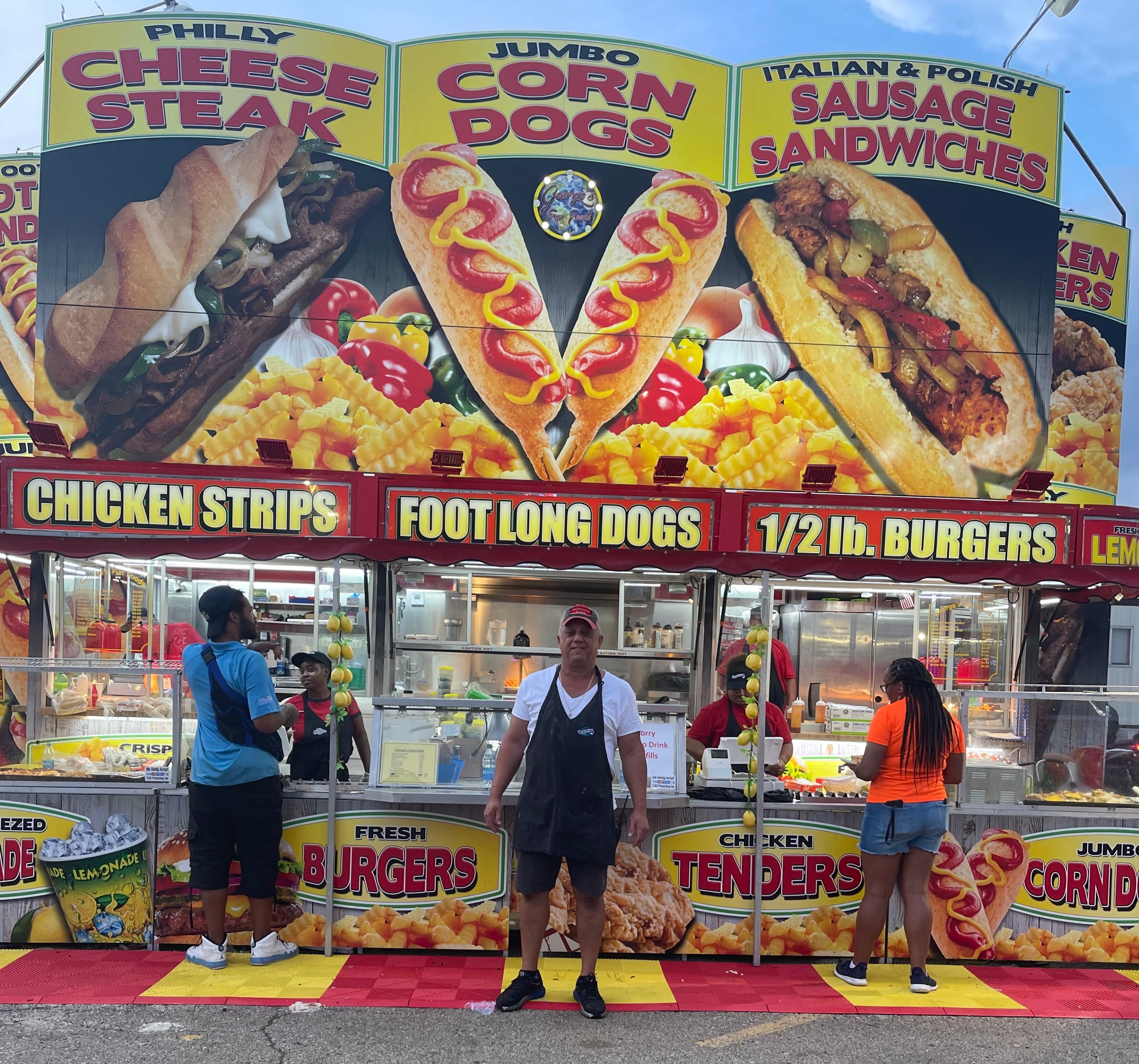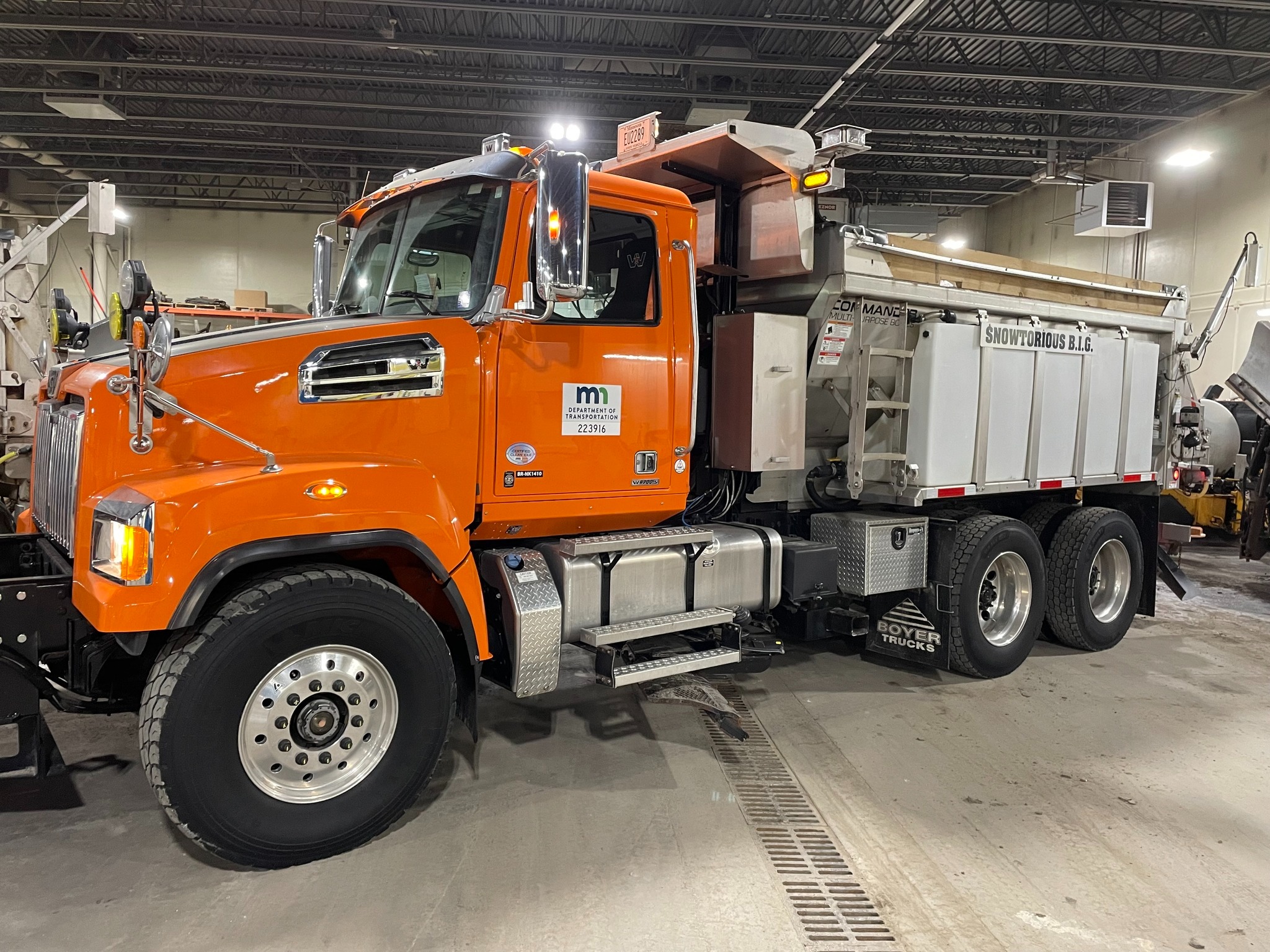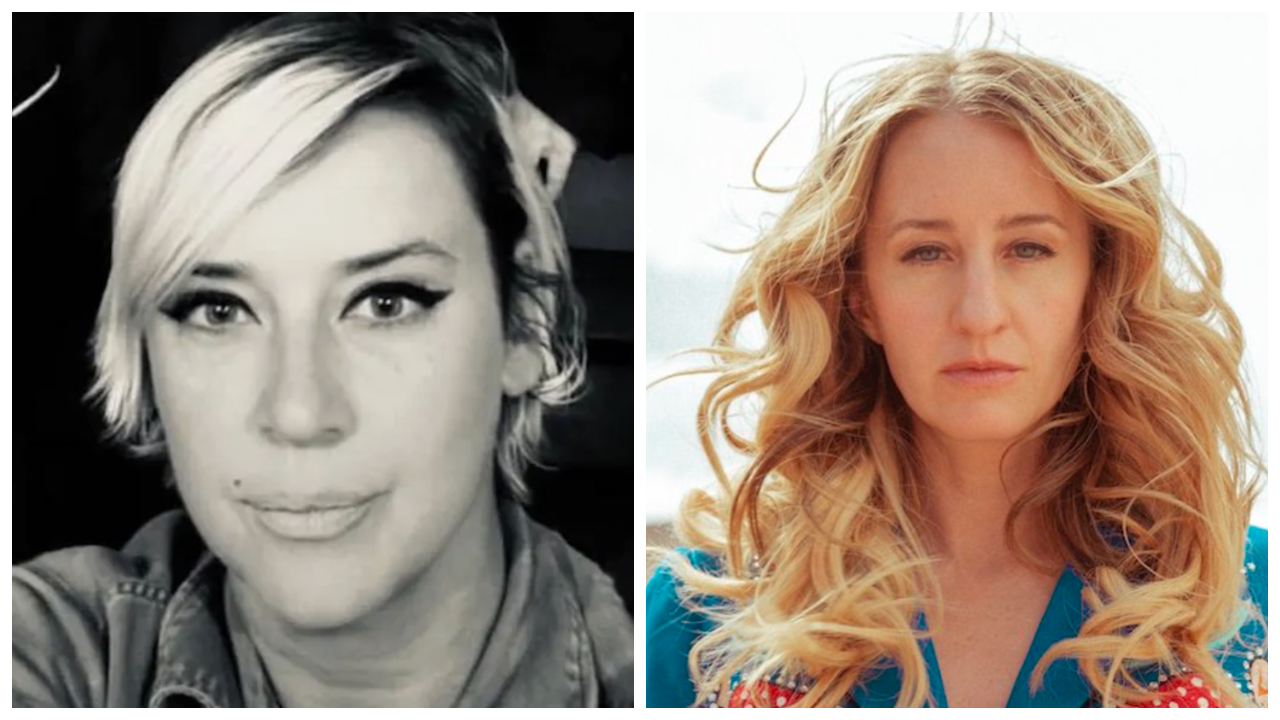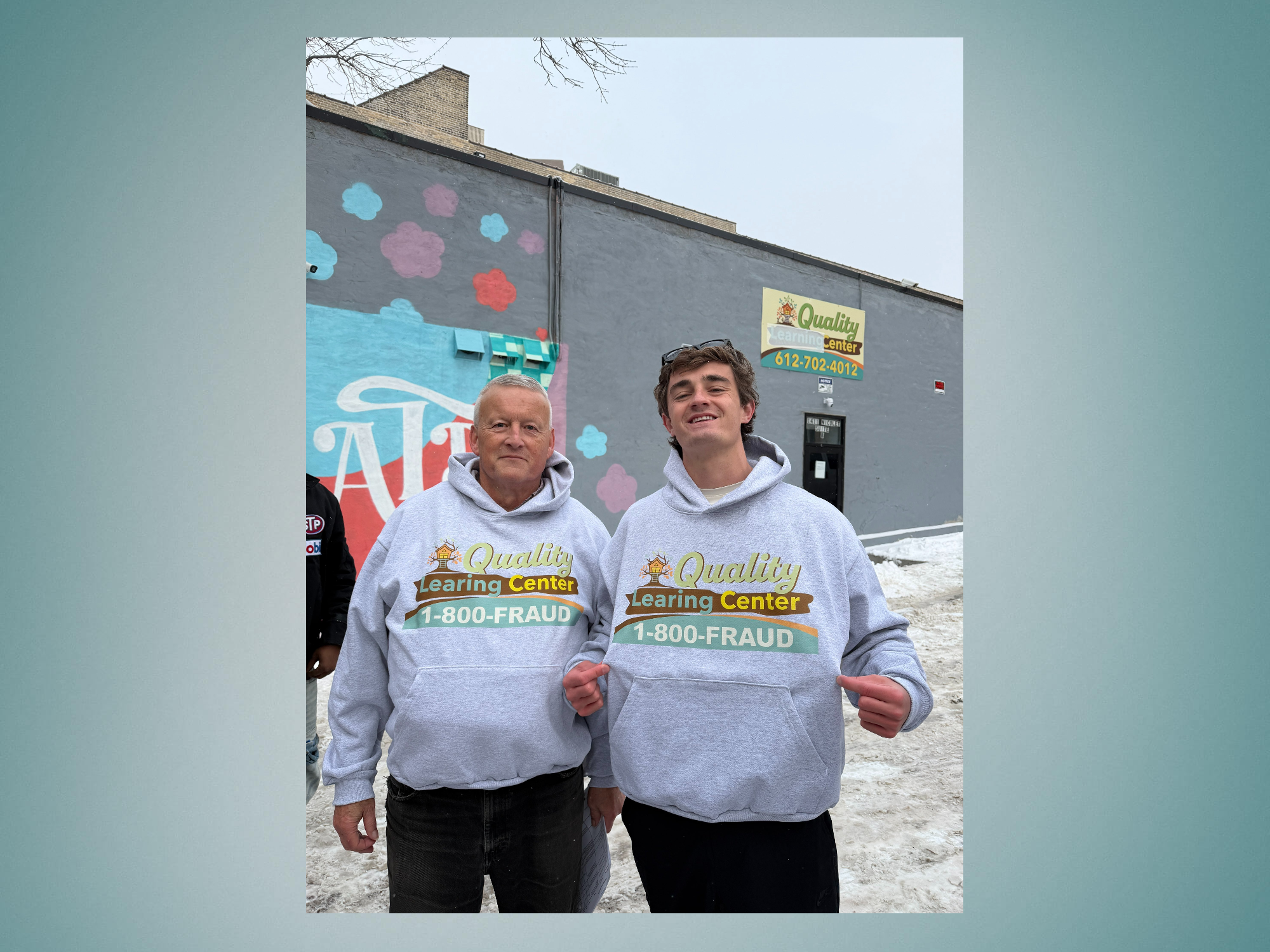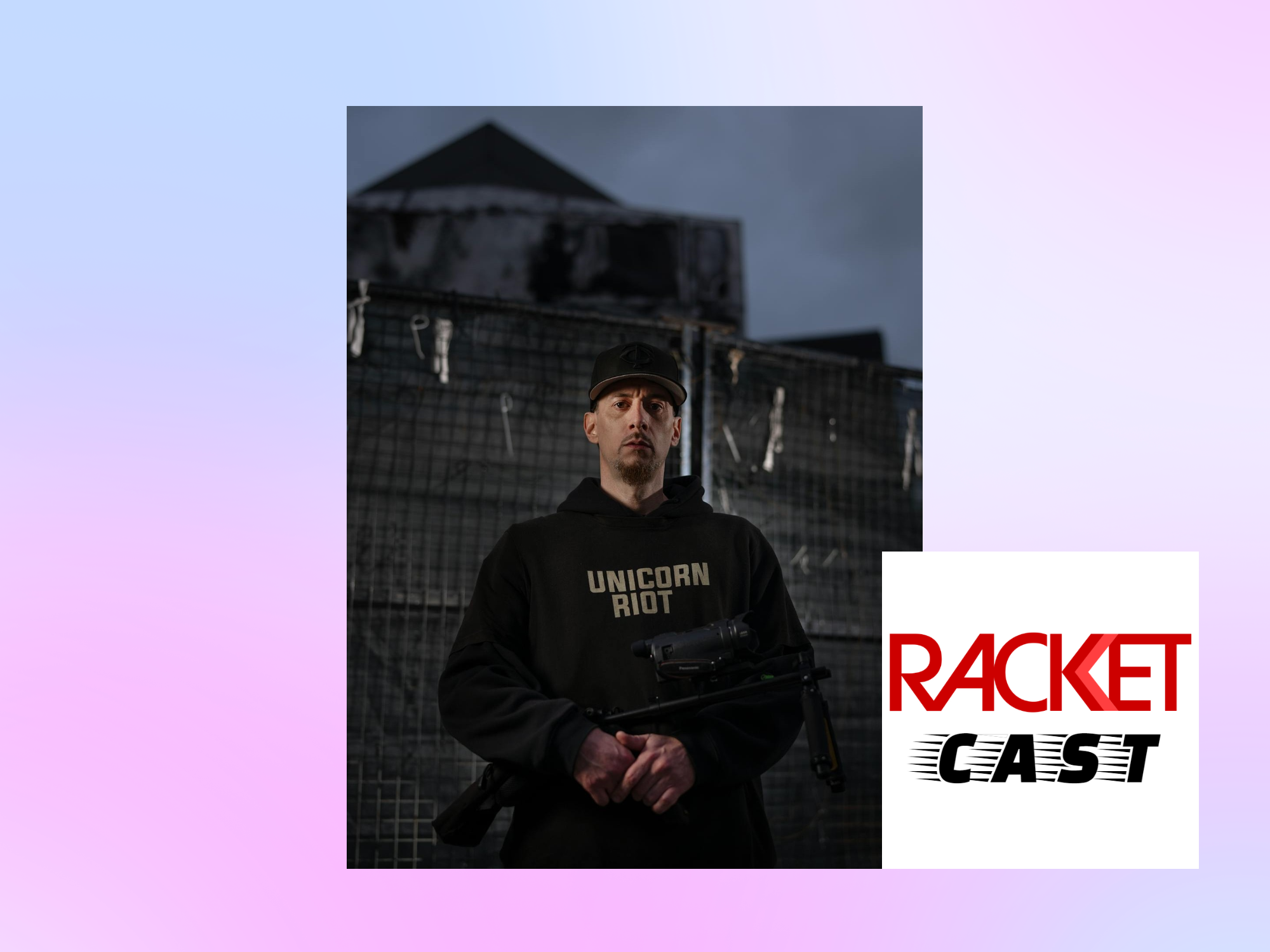There’s a website called Carnival Warehouse with job postings for show people, folks looking to work the seasonal route of state and county fairs that run from early spring into fall and winter. The listings on the board are cryptic, full of intriguing vaudeville phrasing like: “Looking for someone to work Hanky Pant” or “Need a ball and cork man” or “Shake Machine and Beer Bust.”
The posts boast of free bunkhouses with no bugs; they advertise sign-on bonuses and 30% take-home pay to carnival workers and show people. More than the fanciful vocabulary though, there’s something fascinating about the job board, like a peek behind the circus drapes that shows how massive events like the Minnesota State Fair function. Over on the redundantly named Facebook group Carnival Jobs for Carnival Workers & Carnival Midways, the posts can get so personal that reading them as an outsider feels voyeuristic. One user poses a question to the group, “Will they ever understand?” The post gets several likes, but no one replies.
“You have to understand that show people, in general, are strangers in every town that they go to, and it’s a new place every week. We only have each other to rely on," explains Doc Rivera, a historian of outdoor traveling shows and carnivals. He and his family live in Gibsonton, Florida—dubbed “The Carnival Capital of The World”—where he serves as the curator of The Showmen’s Museum.
“It becomes a tight and intricate fraternity out there, when you spend eight months, nine months, sometimes even years on the road," Rivera says. "You learn who you can trust. And of course, especially in the old days, show people would have to back one another up.”
Back in the Facebook group, one post warns “No drunky’s or junky’s or lumppys!” and proclaims that, “If ya can’t get to where ya need to go, we ain’t your kinda hole.” What is a lumppy? Are we lumppys? What “kind of hole” is “our kinda hole?” The questions stack up like rings around a milk jug. Perhaps we aren’t supposed to know what a lumppy is? Maybe hanky panks and shake machines are not for us to understand.
Every year, when we go to the Minnesota State Fair, we’re entering into a kind of whimsical contract: We suspend disbelief and climb onboard to one of the last vestiges of an old American pastime; into a culture that remains willfully un-digital and which stretches back centuries, past vaudeville, from agricultural fairs to traveling sideshows. Because of this, the Carnival Warehouse job board feels almost anachronistic, a strange mixture of old and new—like a cyberspace version of running away to join the circus. The advertisements listed are specifically for traveling show people, targeting vagabond bands of workers who staff the midway, the stretch of a fair where games and rides and food stands are located. These travelers are the people who make “The Great Minnesota Get-Together” happen, and in a year where the state fair remains woefully understaffed, these are the people picking up the slack—and enduring the risks.
“The biggest thing for us, for me as an owner and for my family being generations into this industry, the biggest thing for us is making memories for people," says Richard George, a fourth-generation show person. "We like to see a smile on their faces."
Richard has been working carnivals and fairs his whole life. When we speak on the phone, his family is working at a county fair in Waukesha, Wisconsin, where they operate the food stand George’s Fine Foods.
In the lead up to the Minnesota State Fair, Richard, along with his wife and daughter, will hit a series of state and county fests as they cart their way towards Falcon Heights in late August. They live in a bus while they tour, towing their food stand with them. George’s Fine Foods, Richard’s family business, operates as a candy factory. He sells the classics: candy apples, popcorn, ice cream, and frozen bananas. With a lifetime of carnival and fair experience under his belt, Richard is an expert on the subject. And thankfully, when asked about the Minnesota State Fair, he’s gushing.
“The Minnesota State Fair is one of the most unique venues in the country, people come from all over the country, all over the world to go to the Minnesota State Fair. I’m not gonna say nobody does it as good, but nobody does it better, it’s one of a kind," Richard says, going bolder on the subject than Minnesota Sen. Amy Klobuchar. "And it’s a privilege to be a part of it, because you have to be invited. It’s an honor when they invite you into the fair because it means you’re one of the best of the best, you know?”
Richard and his family started 2021, like so many other carnival workers, in their hometown of Gibsonton, or “Gibtown.” The Georges have been in the carnival business for 80 years now, dating back to Richard’s great grandfather. At 21 years old, Richard’s daughter Molly represents the fifth generation of their business. In Gibsonton, a place founded by circus workers, Richard is an integral part of the community: He’s sat on boards of directors for carnival workers; he knows the business inside and out.
First and foremost, Richard wants to impart that show people have not been immune to the hardships posed by the COVID-19 pandemic. After over a year of no work, he now faces the same problems finding employees that many restaurants are facing. Being short-staffed makes the hours exhausting.
“We can’t get staffing, we’ve had to race and fight for it. We’re paying people $21 an hour to vend hot dogs, you know?" Richard says. "And so then I have to raise that price and all our products went up. It’s not as if we’re trying to make a million dollars, but we have to make up for lost time. We were just out of work for 18 months, and thank god we made it through, but we have to recover, we’re just getting by, keeping gas in the tanks and putting a little money in the bank.”
Despite the challenges he faces though, Richard remains wistful and positive. He says show people are resilient, and they do what they do for a reason.
“There’s a lot of nostalgia and sentimentality in fairs, you see the same families year after year," he says. "They bring us cakes, it’s like seeing old friends. Families who have been coming for years think, 'Oh I hit that bell when I was 12 and now my grandson can hit it.' It’s nostalgia and sentimentality, good memories.”
Carnival Vocabulary Primer
Here are some fun carnival terms from the last 200 years, courtesy of Doc Rivera at the Showmen's Museum and Good Magic.
The midway: The section of a fair where the games, rides and attractions are located.
Drag the midway: When a show person walks between their stand and the gate to try and entice people to come and visit.
Fast count: A score tallied so quickly by the agent that the customer has trouble keeping track.
Ballyhoo: The carnival worker’s spiel to draw in a crowd, a bit like an elaborate commercial geared towards pulling people in.
Hanky pank or hanky pant: A game where every player wins a prize every time, where the cost to play far outweighs the cost of the prize. Usually means it’s a game for small children.
Shake machine: A ride which shakes out loose change from the pockets of the customers riding.
24-hour-man: An employee who travels ahead to the next lot and posts arrows for the rest of the vehicles.
The fix or ice: A payoff to operate without too much scrutiny from authorities.
Blade glommer: A sword swallower.
Flukum: An umbrella term for any mysterious substance (often used for the colored flavoring of sno cones.)
Going south: Stealing money.
Punk joint: A game that largely appeals to children.
Put ‘em on the send: To extract every last dime from a person in the hopes that they will go home or to an ATM to get more money.
